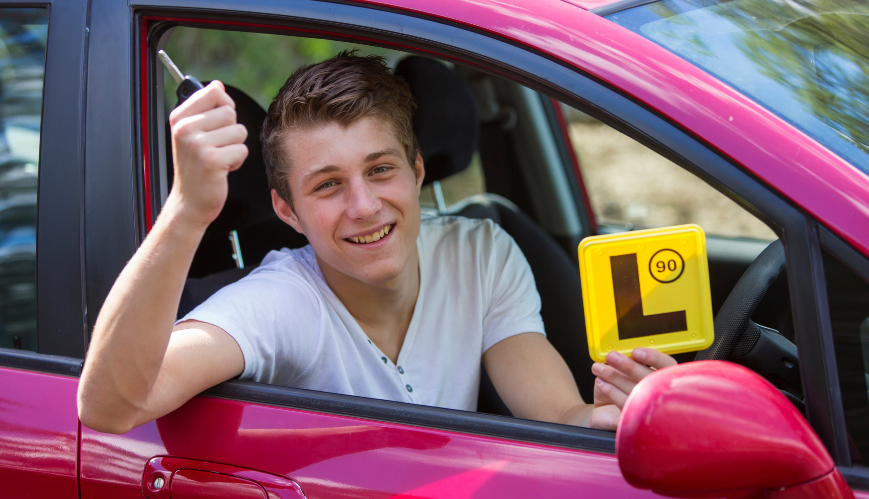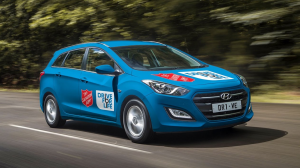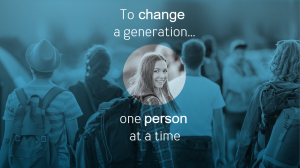Setting teens up for life in Greater Western Sydney

Setting teens up for life in Greater Western Sydney
7 April 2022
Young adults who participate in The Salvation Army’s YouthLink Drive for Life program gain more than a licence, they develop the confidence to take the next step in life. Image: Getty Images.
The leap from teenager to adult is a challenge, but it is made more difficult when a young person faces social, economic or health-related barriers.
The Salvation Army’s YouthLink service, which provides programs throughout Greater Western Sydney, works hand in hand with young people aged 16 to 25 so they can take the next step. And despite ongoing challenges that come from the COVID-19 pandemic, YouthLink’s Skills for Life and Drive for Life programs continue to change young people’s lives positively.
 Look out world! The young adult behind the wheel of this car is setting their course to the future through the Drive for Life program.
Look out world! The young adult behind the wheel of this car is setting their course to the future through the Drive for Life program.
Skills for Life supports over 50 young people with a disability every year. Support workers and therapists assist young people in participating in life skills programs and organising social events. It is a fun and important way for people experiencing disabilities to build confidence and find their place in society.
Drive for Life supports young people to gain their driver’s licence – providing lessons, support, and holistic care they require to become independent. Participants come from all walks of life and are often referred by other youth services because they don’t have the support or finances to achieve their goal of a driver’s licence – something that is essential for young people who are trying to find employment or attend education and training in Sydney’s west.
“[Our clients are] facing some sort of barrier to get their licence,” says Monica Pike, Drive for Life Program Coordinator. “So often, the young people are on Centrelink. We have people coming out of domestic violence situations or foster care. Sometimes [young people] have been in trouble with the police, so they get in touch with us.”
When a young person is accepted into the program, Drive for Life staff facilitate training and preparation for them to pass their learner’s test. Each participant is given driving instruction by a Drive for Life instructor to ensure they are safe and confident on the road. Those who need further support are paired with a trained volunteer or contract driving instructor. Then they methodically work towards their 120 hours of practice until they are permit-ready. But the holistic model must go beyond this and address individual needs – meeting the young person where they are at, quite literally.
 The Salvation Army’s YouthLink services across Greater Western Sydney are committed to empowering a generation ‘one person at a time with the love of Jesus’ through programs like Skills for Life and Drive for Life.
The Salvation Army’s YouthLink services across Greater Western Sydney are committed to empowering a generation ‘one person at a time with the love of Jesus’ through programs like Skills for Life and Drive for Life.
“We work in very low social-economic areas, so it’s not uncommon for the parent not to have a vehicle or a licence. Often, [young people also] come from single-parent families or broken families,” explains James Selby, NSW/ACT YouthLink manager.
The outcomes of Drive for Life graduates are life-changing. And beyond just receiving a driver’s licence – no small task on Sydney streets – they grow in resilience, tenacity and self-confidence.
“I had one young lady who joined us early last year. She got her learner’s permit, but by June, we were in lockdown, so lessons weren’t really a possibility for a long while. [In the meantime] she got herself a job. She has three kids. One of them has autism, and she was so excited to get her driver’s licence as soon as we opened up,” recalls Monica.
“During the first few months of the year, she lost her sister. And when she asked for time off, she lost her job. But a couple of weeks ago, she got her licence, and I think just needed a win. [Before] I asked if we could help you look for other employment, she said, ‘I just can't do that yet’. But that’s changed for her now that something positive has happened.”
Step by step – or kilometre by kilometre – young people are forging a path of hope for themselves through these vital programs in Sydney’s west. And, along the way, they are becoming more than skilled drivers, they are building confidence, social skills, and becoming employment-ready. Look out world!